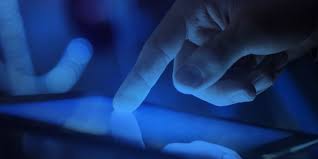Time to Wake Up Poses a Problem for Teens

March 2, 2019
Students may say that waking up for school is a problem they deal with on a daily basis.
The introduction of massive amounts of electronics in today’s world may have something to do with the loss of sleep many students are experiencing.
Some students agree such as senior Fritz Brownell. He admits that use of electronics during the night is not the brightest of ideas. More often than not, he uses his phone at night, and more often than not he doesn’t get a good night’s rest.
“Imagine waking up at 50 percent potential, groggy, uncoordinated and not all ‘there’. Would you like to take a test at only 50 percent of your potential, or sleep and get 100 percent potential?”
Although the answer to the above question is predictable, the culprit of the sleep loss epidemic is not common knowledge.
The main culprit of this epidemic is blue light.
Blue wavelengths are emitted from screens at higher frequencies then normal for humans. According to a study by Harvard Medical School, blue light, when taken in during daylight hours, yields positive results such as increased reaction times, mood and attention spans.
Blue light, however, also has a dark side, too much consumption of this during late hours in the night may lead to serious melatonin reduction, the main factor related to getting a good night’s rest.
Additionally, some students feel they do not necessarily lose sleep only because of this; stress is another big part of losing sleep.
Fritz reflects: “I remember how much sleep I lost during junior year of high school — big tests, choosing colleges and most of all the ACT — yeah that stuff keeps a highschooler up at night. It’s a lot better now that it’s all said and done; I suppose now I can ‘rest’ easy huh?”


Emily Speers • Mar 7, 2019 at 11:45 AM
I’ve heard this information before, yet hearing it with examples from NHS makes the information increasingly prevalent in my life. I loved the quote about only being at 50% of your potential if you don’t sleep enough or sleep correctly. I also find it interesting that you mentioned the positives of blue light as well as the negatives. I have always been curious about why blue light is used, and this answered those questions. I loved your insightful article and that I found the ability to relate to it!
Kadin Yach • Mar 6, 2019 at 11:34 AM
Very interesting article. I have read some stories on how the blue light cast from your phone prevents you from getting a good sleep, but the articles never mention how the blue light could have positive affects during the day, like “increased reaction times, mood and attention spans”. I always feel if the school started classes at least an hour later in the day, then more students would get more rest and test scores would improve significantly. Nonetheless, this is a concerning issue and I’m glad you covered it as a representative for the student body at the Neenah High School.